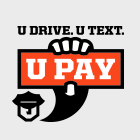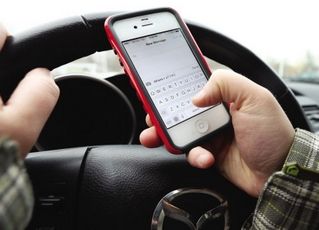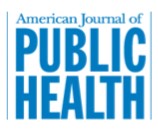Anti-Texting Enforcement Intensifies as Study Indicates Law Can Save Lives
/An unprecedented anti-texting enforcement effort by the Connecticut Department of Transportation’s Highway Safety Office, part of the “U Drive. U Text. U Pay.” campaign, concludes this week on September 24. The nearly month-long enforcement mobilization marked the first time the state has used dedicated federal funds to curb texting while driving. Connecticut was the only state in the nation to receive $2.3 million in federal Distracted Driving prevention funds from the National Highway Traffic Safety Administration (NHTSA).
The joint effort by state and local police enforces Connecticut’s law that prohibits motorists from texting and/or using hand-held cell phones while driving. Under Connecticut’s cell phone and texting law, violations involve heavy fines, ranging from $150 for a first offense and $300 for a second violation to $500 for each subsequent violation.
Using data from the Governor’s Highway Safety Administration, the National Conference of State Legislatures summarizes state cellular phone use and texting while driving laws.
- Hand-held Cell Phone Use Ban: 13 states, D.C., Puerto Rico, Guam and the U.S. Virgin Islands prohibit all drivers from using hand-held cell phones while driving.
- All Cell Phone ban: No state bans all cell phone use for all drivers, but 37 states and D.C. ban all cell phone use by novice or teen drivers, and 20 states and D.C. prohibit any cell phone use for school bus drivers.
- Text Messaging ban: 44 states, D.C., Puerto Rico, Guam and the U.S. Virgin Islands ban text messaging for all drivers. Four states prohibit text messaging by novice or teen drivers and three states restrict school bus drivers from texting.
 Texting bans can reduce teen traffic fatalities by as much as 11 percent, according to a new study of the effect of such state laws. Texting bans aimed at teens and that allow primary enforcement of the law —they don’t require officers to have another reason for the traffic stop — have had the most dramatic effect, a team of researchers at the University of Alabama at Birmingham School of Public Health found in a study published in the August edition of the American Journal of Public Health.
Texting bans can reduce teen traffic fatalities by as much as 11 percent, according to a new study of the effect of such state laws. Texting bans aimed at teens and that allow primary enforcement of the law —they don’t require officers to have another reason for the traffic stop — have had the most dramatic effect, a team of researchers at the University of Alabama at Birmingham School of Public Health found in a study published in the August edition of the American Journal of Public Health.
“[O]ur results provide strong evidence that the primarily enforced texting laws seem to be reaching the intended subpopulations who are most at risk for texting while driving,” the researchers indicated.
According to the website distraction.gov, the official U.S. government website for distracted driving, Connecticut law includes:
- Handheld ban for all drivers (Primary law)
- Ban on all cell phone use (handheld and hands-free) for bus drivers (Primary law)
- Ban on all cell phone use (handheld and hands-free) for novice drivers (Primary law)
- Ban on texting for all drivers (Primary law)
Connecticut defines novice drivers as those under the age of 18 or with a learner's permit.
In the recently published research, the team examined 11 years of data from the 48 contiguous states. They controlled for other factors that may influence crash risk, such as economic, legal and population-specific indicators. (Unemployment, for example, can influence risk because fewer workers means fewer drivers on the road. Income and gas prices can affect how much people drive, again exposing them to more risk.)
Just having a texting law was linked to a 2.3 percent decline in overall traffic fatalities for all drivers.
“Our results indicate that states that have not enacted any primarily enforced texting bans are missing out on opportunities to prevent avoidable roadway deaths,” said one of the authors, Alva O. Ferdinand.
The first of the researchers’ three main findings was that primary enforcement really matters. At the time of this study, Alva O. Ferdinand, Nir Menachemi, Bisakha Sen, Justin L. Blackburn, and Michael Morrisey were with the Department of Health Care Organization and Policy, University of Alabama at Birmingham. Leonard Nelson was with the Cumberland School of Law, Samford University, Birmingham, AL.
While the focused enforcement mobilization will end Sept. 24, the Transportation Department says enforcing Connecticut’s tough hand held mobile phone ban remains a priority.






























